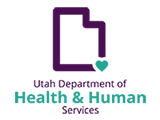Health Indicator Report of Health Insurance Coverage
Most people need medical care at some time in their lives. Medical care is often quite expensive and is becoming more expensive. Health insurance covers all or some costs of care and protects people from very high expenses.
Persons with health insurance are more likely than persons without health insurance to have a regular source of primary health care and to have routine preventive care. Persons without coverage often have delayed seeking needed care and find services difficult to afford.
No Health Insurance Coverage by Local Health District, Age-adjusted, Utah, 2019
No Health Insurance Coverage by Local Health District, Age-adjusted, Utah, 2019
Notes
Health insurance is defined as including private coverage, Medicaid, Medicare, and other government programs. [[br]] [[br]] Age-adjusted to U.S. 2000 standard population using 6 age-adjustment age groups. [[br]] [[br]] *Use caution in interpreting. The estimates have a relative standard error >30% and are therefore deemed unreliable by Utah Department of Health standards.Data Source
Utah Data: Behavioral Risk Factor Surveillance System, Office of Public Health Assessment, Utah Department of HealthData Interpretation Issues
Estimates of the uninsured in Utah are currently calculated using a set of state-added questions included on the Utah Behavioral Risk Factor Surveillance System (BRFSS). Formerly these questions were asked on two state-based surveys - the Utah Healthcare Access Survey (UHAS) and the Utah Health Status Survey (HSS). Since 2011 the BRFSS has included both landline and cell phone telephone interviews as well as an updated weighting methodology. For more information, please see: [https://ibis.health.utah.gov/pdf/opha/resource/brfss/RakingImpact2011.pdf]. Compared with state surveys in Utah, the U.S. Current Population Survey (CPS) and the American Community Survey (ACS) have historically yielded higher estimates of the Utah population with no health insurance coverage. Reasons may include differences in question-wording, data weighting, and data imputation for missing values. For a thorough discussion of why state health insurance estimates differ from those produced by the U.S. Census Bureau, please refer to the State Health Access Data Assistance Center (SHADAC) publication 'Comparing Federal Government Surveys that Count the Uninsured: 2016' at [http://www.shadac.org/publications/comparing-federal-government-surveys-count-uninsured-2016].- Utah and U.S. ACS and BRFSS Estimates, 2008-2020
- Utah and U.S. ACS and BRFSS Estimates, Children Aged 0-17, 2008-2016 and Children Aged 0-18, 2017-2019
- by Survey Year, Utah, 1986, 1991, 1996, 2001, 2003-2019
- by Age and Sex, Utah, 2020
- by Local Health District, All Ages and Ages 19-64, Utah, 2020
- by Utah Small Area, 2015-2019
- by Race, Utah, 2020
- by Ethnicity, Utah, 2019
- by Employment Status, Utahns Ages 19-64, 2019
- by Income Category, Utah, 2019
- Utah and U.S. UHAS and CPS Estimates, 1988-2008
- Utah and U.S. UHAS, and CPS Estimates, Children 0-17, 1988-2008
Definition
The percentage of persons without health insurance coverageNumerator
Number of persons in the survey sample who lacked health insurance coverageDenominator
Total number of persons in the survey sampleHealthy People Objective AHS-1.1:
Increase the proportion of persons with medical insuranceU.S. target: 100 percent
How Are We Doing?
In 2020, an estimated 383,500 (11.8%) of Utahns were without health insurance coverage. (BRFSS data)How Do We Compare With the U.S.?
In 2020, the ACS estimate for uninsured Utahns was 9.7%* while the national ACS estimate was 9.2%*. At 11.8% in 2020, the Utah BRFSS data was less than the ACS Utah uninsured rate. The slight variation of the estimate of the uninsured from the BRFSS are because the questions used to estimate insurance coverage are considered 'state-added' questions and are specific to Utah. *2020 ACS figures are yet to be released.What Is Being Done?
The Utah Department of Health administers programs to improve access to care, such as Medicaid, Children's Health Insurance Program (CHIP), and Utah's Premium Partnership for Health Insurance (UPP). The Department also works to improve the "safety net" for persons who lack health insurance. This is done through primary care grants to rural areas and clinics for children with disabilities. Local health departments provide preventive services such as immunizations and screenings at low or no cost to eligible persons who cannot afford them.Available Services
MEDICAID: In the Salt Lake City area, call (801) 538-6155.[[br]] In Utah, Idaho, Wyoming, Colorado, New Mexico, Arizona, and Nevada, call toll-free (800) 662-9651.[[br]] From other states, call (801) 538-6155.[[br]] Medicaid Customer Service staff are available to take inquiries. CHIP: Children's Health Insurance Program (for children 0-18)[[br]] Call (877) KIDS-NOW (543-7669) [[br]]or visit the CHIP website at [http://chip.health.utah.gov/] UPP: Utah's Premium Partnership for Health Insurance[[br]] (888) 222-2542 or visit [http://medicaid.utah.gov/upp/]Health Program Information
Concerns about rising health care costs and the affordability of health care insurance led to the enactment of the Patient Protection and Affordable Care Act (ACA) in 2010. In Utah, citizens can sign up for health insurance through the federal exchange or through the Utah exchange, Avenue H, if they work for a participating small business.
Page Content Updated On 10/22/2021,
Published on 01/13/2022
